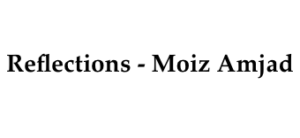Introduction
After completing a training workshop[1], invariably I get calls from participants who express concern about why they tend to ignore practicing the different concepts they have learned, even after comprehending them and agreeing with them. For instance, they would ask why they face difficulty in practicing the various guidelines of “effective conversations” or “expressing appreciation and disagreements” in their everyday lives. The same phenomenon can also be observed in corporate trainings. Almost 90% of training workshops conducted in the corporate sector, rated very highly immediately after completion, fail to bring about any significant and consistent change in the participants. Why is it so? Are the participants so utterly devoid of commitment? Motivation? Will power? Does the problem lie with team cultures? Do organizational environments discourage such transformations? Or is the resistance to making a change a natural phenomenon?
My short answer to such questions is that reading and understanding a book on Emotional Intelligence and being Emotionally Intelligent are two entirely different phenomena requiring different capacities from us. A more detailed answer, however, is given below:
There are two kinds of problems we face: “Technical Challenges” and “Adaptive Challenges.”[2]
In a Technical challenge, the skillset required to overcome the challenge is generally well-known. A strong desire to overcome the challenge, access to the necessary information about the skillset, the opportunity to learn that skillset, and a commitment to put in the required effort are likely to allow one to overcome such challenges[3].
Adaptive challenges, on the other hand, require a change in the mindset, attitudes, assumptions, and beliefs of the person trying to tackle them[4]. It may be interesting to note that one’s mindset, attitudes, assumptions, and beliefs constitute one’s psychological “self” or “identity.” As a result, overcoming an Adaptive challenge, in a way, puts one’s current psychological “self” and “identity” at risk. This is where our “psychological immune system” comes into play.
Like its biological counterpart, which protects our biological “identity” and “self,” our psychological immune system protects our psychological “identity” and “self.”
When we tackle Adaptive challenges, our psychological immune system is on high alert to protect us from destroying our psychological “self” and “identity” and to protect us from the consequent psychological pain, suffering, or even “death.” Also, like the biological immune system – which, for instance, can severely obstruct adaptability in organ transplants and, thus, work against the very system it was meant to protect – our psychological immune system, if not kept in check, can block any changes we know are desirable and, sometimes, even necessary for our psychological growth and wellbeing.
Overcoming an Adaptive challenge requires one to be committed to learning a new behavior, on the one hand, while also being willing to risk one’s current identity and psychological “self” to develop a new and improved identity and psychological “self,” on the other.
Another aspect of Technical and Adaptive challenges that makes the situation more complex is that some challenges can be Technical for one person and Adaptive for another. One person may find it sufficient to get information about maintaining a healthy lifestyle for actually maintaining one. Another person may have all the information about maintaining a healthy lifestyle but find it irresistible to avoid eating sweets whenever they are in sight.
The difference between Adaptive and Technical challenges makes it imperative that we 1) recognize them as two separate challenges, 2) know how to diagnose and separate them from each other, and 3) treat them differently.
For Technical problems, the solution lies in disseminating and delivering the required information by organizing training programs and workshops. Adaptive problems, on the other hand, require us to make conscious and intentional alterations in our mindsets, attitudes, assumptions, and beliefs.
But how does one achieve that?
Two developmental psychologists at Harvard – Robert Kegan and Lisa L. Lahey – and their colleagues developed and refined the answer to this question. Our workshop, “Overturning our Immunity to Change,” is based on their answer.
Video Introduction
[1] The topics of my workshops are generally related to character development and moral uplifting.
[2] See “The Practice of Adaptive Leadership” by Ronald Heifetz
[3] Such challenges may include learning to fly a plane, becoming a chef, a surgeon, a typist, reading a book on Emotional Intelligence, etc.
[4] Such challenges may include being more emotionally intelligent, developing a healthy lifestyle, being more mindful of the impact of one’s actions on others, overcoming an addiction, being more empathic with oneself and others, etc.
OVERTURNING OUR
"IMMUNITY TO CHANGE"
